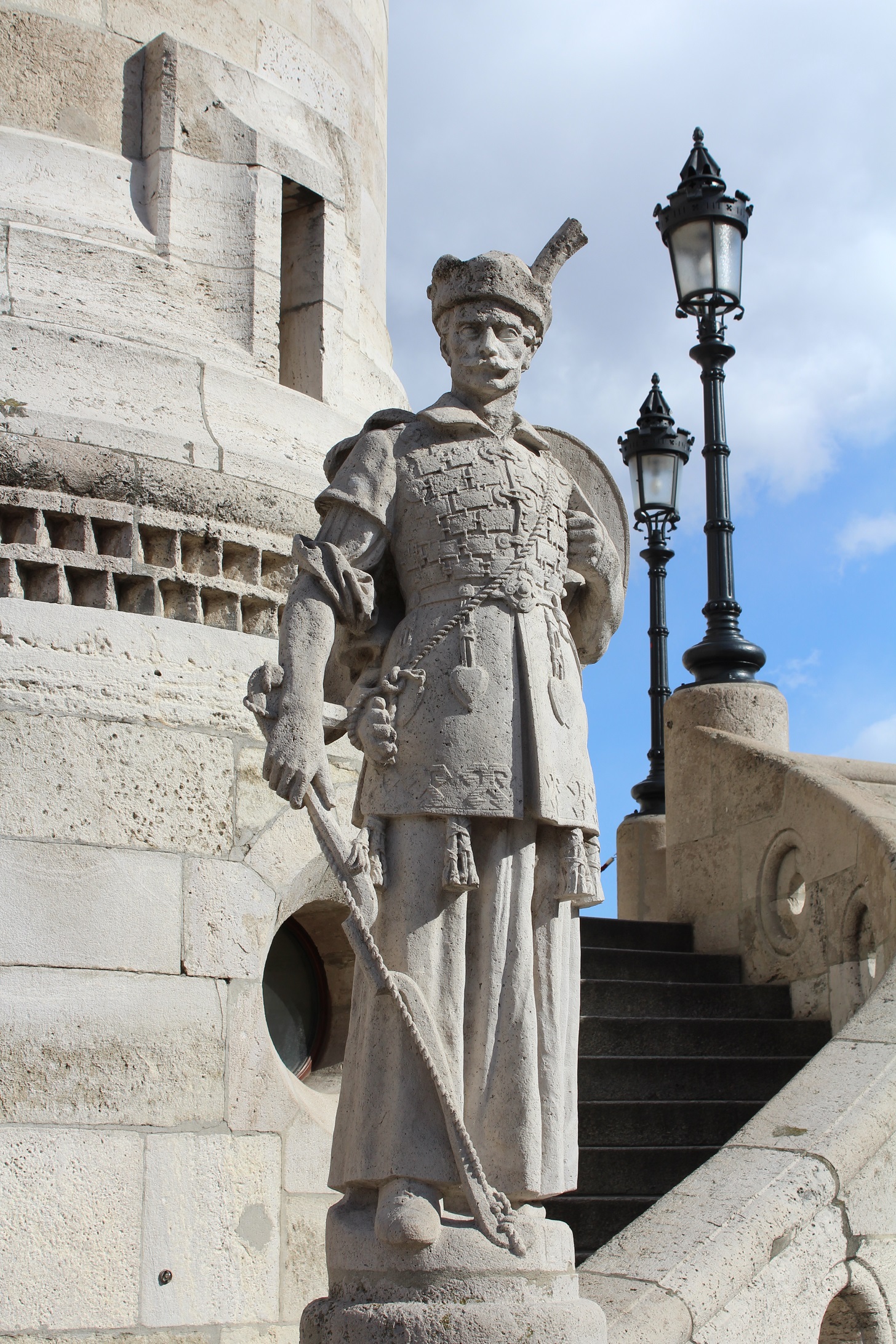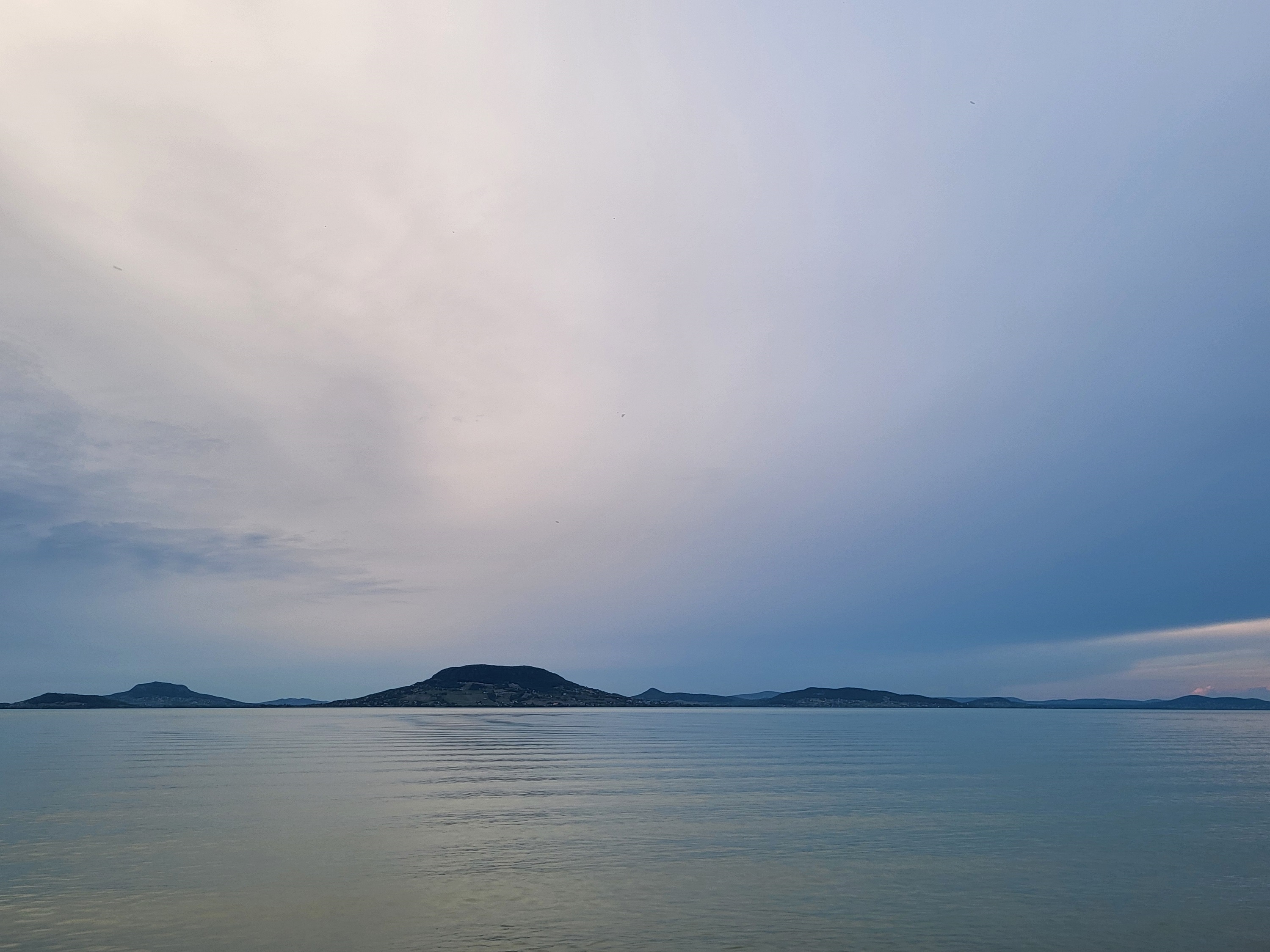.
Europe
Hungary
18/05/2025 Tens of thousands of people protested in Budapest today against a planned law that would allow the government to sanction NGOs and media it deemed a threat to Hungary's sovereignty. The bill on transparency in public life would empower the government to blacklist organisations that threaten the sovereignty of Hungary by using foreign funding to influence public life. They would need permission to receive foreign funding. The government has denied any authoritarian intent, insisting it only wants to dismantle a foreign-funded propaganda network. "Yes to political debate, yes to freedom of speech, no to foreign money," PM Orbán told ruling party activists at an event yesterday. (Source: France 24)
Germany
May 18, 2025 German defense company Rheinmetall and American aerospace titan Lockheed Martin have announced plans to establish a joint venture aimed at producing advanced missile systems, including the Army Tactical Missile System [ATACMS] and Patriot PAC-3, in Europe. Negotiations are underway for Rheinmetall to hold a 60% stake in the venture. The initiative, which is pending approval from both U.S. and German governments, is expected to commence production of rocket motors in 2026 and missiles by 2027. The venture could generate annual sales of up to €5 billion. Rheinmetall is already a key contractor for Lockheed’s F-35 program, set to produce 400 center fuselage sections starting in July 2025 at its facility in Weeze, Germany. 'Rheinmetall has recent financial performance with a 46% sales increase to €2.305 billion in Q1 2025'. Spain recently signed an agreement with Lockheed Martin to produce PAC-3 MSE components, while Poland has begun manufacturing launch tubes for the system. (Source: BulgarianMilitary - Bulgaria)
by Nikolov
Poland
(Sunday), May 18, 2025 6:46 PM EDT Liberal Warsaw Mayor Trzaskowski and the conservative historian, Nawrocki, emerged as the front-runners in Poland’s presidential election today, according to an exit poll, putting them on track to face off in a second round in two weeks, on June 1. A late exit poll by the Ipsos institute released three hours after polls closed showed Trzaskowski with an estimated 31.1 percent of the votes and Nawrocki with 29.1 percent. ’Far-right’ candidate Mentzen was projected to garner 14.8 percent, a strong result his Confederation party celebrated. An extreme right-wing candidate, Braun, was predicted to win 6.3 percent, according to the exit poll. Official results are expected tomorrow or Tuesday. Polish authorities have reported foreign attempts at interference during the campaign, including denial-of-service attacks targeting parties in Tusk’s coalition and allegations by a state research institute that political ads on Facebook were funded from abroad. The presidency carries substantial power, with a strong role in foreign and security policy and veto power over laws. The conservative outgoing president, Duda, has repeatedly used that power over more than the past year to hamper Tusk’s agenda. A Trzaskowski victory could be expected to end such a standoff. He is a liberal allied with Prime Minister Donald Tusk who speaks foreign languages and holds pro-European Union views. Exit polls show the terrain ahead being challenging for Trzaskowski. His support is strongest in cities, where many like his secular views and support for LGBTQ+ rights. Trzaskowski has pledged to support reforms to the courts and public media, both of which critics say were politicized under Law and Justice. Tusk’s opponents accuse him of also politicizing public media. Trzaskowski, who ran for the presidency in 2020 and narrowly lost to Duda, had been polling higher earlier in the campaign but had mishaps including disappointing debate performances, with behavior described by political commentators as overconfident or even arrogant. He described Nawrocki as someone who is radical and seeks conflict and promised to be a constructive president who would reduce tensions in the deeply divided nation. Nawrocki is a conservative historian with no prior political experience who was backed by the national conservative Law and Justice party. The head of a state historical institute, Nawrocki has positioned himself as a defender of conservative values and national sovereignty. He was welcomed by President Trump at the White House earlier this month in what was viewed as an endorsement. He has embraced anti-Ukrainian rhetoric during the campaign. It was a worse showing for Trzaskowski than expected, and it appeared overall to be a good showing for the candidates on the right in a large field of 13 candidates. Addressing his supporters, Nawrocki hailed his result, noting that there was just a cosmetic difference between himself, a political newcomer, and Trzaskowski, long viewed as the frontrunner. During an election night event in Gdansk he thanked the millions of Poles „who did not succumb to the pressure of propaganda, falsehood, lies.’ (Source: PBS – U.S.)
Portugal
19.05.2025 Portugal’s center-right Democratic Alliance (AD) won the most seats but fell short of a majority in yesterday’s general election. The ’far-right’ Chega party nearly overtook the Socialist Party for second place. Incumbent Montenegro is expected to remain Portugal’s prime minister, but a surge in support for Chega dashed his ambitions of securing a stronger mandate. The snap election was triggered by ethical concerns related to the business dealings of Montenegro’s family. Sunday’s vote was the country’s third general election since 2022, highlighting ongoing political volatility. With 99.13% of the votes counted, the Socialist Party held a two-seat lead over Chega, preserving its status as the main opposition party by only a slim margin. With 98% of the votes counted, they were tied, the Socialists and Chega both won around 23% of the popular vote. The final results could see a change in the total seat count - votes from abroad still need to be counted, with around 17 seats still up in the air. Led by former football pundit Ventura, Chega campaigned on hardline anti-immigration policies and an aggressive anti-corruption message. Chega’s gains were fueled by victories in traditionally left-leaning areas in southern Portugal. The AD retained control over conservative strongholds in the country’s center and north. The Socialists are expected to back the conservative alliance to keep the ’far-right’ out of government, as they did after the 2024 results. (Source: Anadolu Agency - Turkey)
Romania
5 5 19 Durov, the founder and CEO of Telegram, claimed yesterday that he rejected a direct request from French intelligence to block conservative voices in Romania ahead of the country’s presidential election runoff. In a series of posts on his Telegram channel, Durov alleged that Lerner, the head of France’s DGSI (domestic intelligence agency), personally approached him during a meeting in Paris this spring at the Salon des Batailles in the Hôtel de Crillon. ’Lerner, head of French intelligence, asked me to ban conservative voices in Romania ahead of elections,’ Durov wrote. “I refused. We didn’t block protesters in Russia, Belarus, or Iran. We won’t start doing it in Europe.” (9:38 PM May 18, 2025) Earlier, Durov had cryptically hinted at the country involved, writing, “A Western European government (guess which 🥖) approached Telegram asking us to silence conservative voices in Romania ahead of today’s presidential elections. I flatly refused. Telegram will not restrict the freedoms of Romanian users or block their political channels”. (5:28 PM · May 18, 2025) /2,3 M views/. He continued, “You can’t ‘defend democracy’ by destroying democracy. You can’t ‘fight election interference’ by interfering with elections. You either have freedom of speech and fair elections - or you don’t. And the Romanian people deserve both.” France swiftly rejected the accusations. The French foreign ministry posted on X that completely unfounded allegations are circulating on Telegram and Twitter (X) regarding alleged French interference in the Romanian presidential election. ’France categorically rejects these allegations and calls on everyone to exercise responsibility and respect for Romanian democracy’. Durov’s claims surfaced just hours before polls closed in Romania’s high-stakes runoff between centrist independent Dan and hard-right nationalist Simion. As per The New York Times, Dan, won with 54% of the vote, defeating Simion, who secured 46%. Simion, aligned with Trump-style populism and sceptical of EU policies, preemptively claimed fraud, warning of dead people on voter rolls without providing evidence. We are the clear winners of these elections, he told supporters before results were confirmed. Durov, who was detained in France last year in an unrelated investigation into Telegram’s role in enabling illicit activity, has remained a controversial figure. According to The New York Times, he was charged with complicity in crimes like child sexual abuse distribution and drug trafficking. Durov denies the allegations and argues Telegram exceeds its legal responsibilities regarding content moderation. (Source: MSN - U.S. / Times of India)
(Sunday), May 18, 20257:17 PM ET Pro-European Union candidate Dan has won Romania's presidential runoff against a hard-right nationalist, nearly complete electoral data shows. A huge turnout today played a key role in the tense election that many viewed as a geopolitical choice between East or West. The race pitted front-runner Simion, the 38-year-old leader of the hard-right Alliance for the Unity of Romanians, or AUR, against Dan, the incumbent mayor of Bucharest. After 10.7 million of 11.6 million votes were counted, Dan was ahead with 54.19%, while Simion trailed at 45.81%, according to official data. In the first-round vote on May 4, Simion won almost double the votes as Dan, and many local surveys had predicted he would secure the presidency. When voting closed at 9 p.m. local time (1800 GMT), official electoral data showed a 64% voter turnout. About 1.64 million Romanians abroad at specially set-up polling stations participated in the vote, some 660,000 more than in the first round. In the first round on May 4, the final turnout stood at 53% of eligible voters. Dan, a 55-year-old mathematician, rose to prominence as a civic activist fighting against illegal real estate projects. 'In 2026', he founded the reformist Save Romania Union party but later left, and ran independently on a pro-European Union ticket reaffirming Western ties, support for Ukraine and fiscal reform. Romania's political landscape was upended last year when a top court voided the previous election in which 'far-right' outsider Georgescu topped first-round polls, following allegations of electoral violations and Russian interference, which Moscow denied. After coming fourth in last year's canceled race, Simion backed Georgescu, who was banned in March from running in the election redo. Simion then surged to front-runner in the May 4 first round after becoming the standard-bearer for the hard right. In the early afternoon, Simion told reporters that his team was confident in a landslide victory, if the election was free and fair. He repeated allegations of voting irregularities among Romanian citizens in neighboring Moldova and said that his party members would conduct a parallel vote count after polls closed. A former activist who campaigned for reunification with neighboring Moldova, Simion says he would focus on reforms: slashing red tape and reducing bureaucracy and taxes. Still, he insists that restoring democracy is his priority, returning the will of the people. After polls closed, standing on the steps of Romania's colossal Communist-era parliament building, Simion had predicted a victory, and said that Georgescu was supposed to be the president before last year's election was annulled. He also called for vigilance against election fraud, but said that overall he was satisfied with the conduct of the vote. His AUR party says it stands for family, nation, faith, and freedom and rose to prominence in a 2020 parliamentary election. It has since grown to become the second-largest party in the Romanian legislature. Years of endemic corruption and growing anger toward Romania's political establishment have fueled a surge in support for anti-establishment and hard-right figures. The president is elected for a five-year term and has significant decision-making powers in matters of national security and foreign policy. The winner of today's race will be charged with nominating a new prime minister after Marcel Ciolacu stepped down following the failure of his coalition's candidate to advance to the runoff. Both Simion and Dan have made their political careers railing against Romania's old political class. Romania comes out of this election very divided. Older political parties are challenged to adapt to a new reality. (Source: NPR - U.S.)
Russia
19 May 2025 Russian opposition media continue broadcasting from abroad. Since February 2022, the last media outlets in Russia that were opposed to the government and the invasion were blocked. Those both outlets started to rely heavily on Western social media platforms, mostly YouTube. At the beginning of the full-scale invasion, Google had cut all the monetization of YouTube for Russia-based accounts. The Russian government started blocking YouTube in 2024, and, by the first half of 2025, traffic to YouTube from Russia fell to just 20 percent of the previous levels. Even now, tens of millions of people inside Russia receive information from independent media - and that still has real influence, Kournikov, editor of the Echo of Moscow website working from Berlin, said. Western platforms had not helped opposition journalists to get to the Russian audience. All attempts - open letters, conversations in different formats with them or their representatives - have led to nothing over these past three years, Dzyadko, the editor-in-chief of Dozhd (TV Rain) said in an interview to Kolezev, another opposition journalist. „To be blunt, from what I understand, economically, it’s an insignificant market for them now. It’s a gray zone at best. It’s easier to avoid the hassle - they might have employees or relatives who could be taken hostage, so they just stay away’. Despite YouTube being blocked in Russia, journalists of many political opposition channels on YouTube claim that they have not noticed the drop. Their monetization increased, as it did for everyone targeting a Russian-speaking audience. Russians are using VPNs to access these channels. Many Russians moved to places like the Netherlands, Singapore, the US, Germany, etc., and continued watching them. Opposition media also encountered funding issues, when US President Trump’s administration stopped USAID funds. Living abroad, Russian Zimin said in an interview to an online Russian opposition media Breakfast Show the day USAID funds were frozen, Khodorkovsky and he announced they would help NGOs from Ukraine and Russian opposition media and NGOs abroad. These two in exile would make up part of the funds they lost, to keep them afloat for 90 days. This happened over three months ago. It is not known whether their fund continues doing it. “We can't replace USAID - those are massive sums, billions,’ Zimin said: At the moment, it is not known which media will stop working altogether after losing US funds. Dozhd (TV Rain), Breakfast Show, and Echo of Moscow (website and YouTube channels that work from Berlin and some from Moscow), are selling t-shirts or baseball caps, books. They also organize public meetings or concerts with their speakers and anchors for the Russian speaking audience abroad, selling tickets. Many media joined a call to help Mediazona, an outlet originally founded by Pussy Riot members, and devoted to human rights and political prisoners of the regime in Russia. Mediazona said they would not survive till the end of 2025 unless they get 10,000 monthly subscribers. At the moment the outlet has a bit over 5000 monthly subscribers. Kournikov described the financial situation of the foreign-based projects of Echo of Moscow: We’re short on funds, but our audience is growing. We’re publishing books, holding events. We recently released a book on US–Russia relations in the 1990s, and soon will publish a book on the history of the Russian Orthodox Church under Gorbachev and Putin. We’re also traveling with lectures. (Source: Global Voices - headquarters Amsterdam, the Netherlands)
by Dergacheva
Ukraine
18 May 2025 Ukraine's air force said Russia had launched 273 drones by 08:00 today (05:00 GMT) targeting the central Kyiv region, and Dnipropetrovsk and Donetsk regions in the east. (Source: BBC - United Kingdom)
United Kingdom
May 19, 2025 E.U. and Britain announce trade, defense deals after Brexit rupture. The deal does not undo Brexit. The leaders of Britain and the European Union announced deals today on defense, security and food exports at a landmark summit intended to usher in the most significant resetting of relations between the two sides since Brexit. The summit, held in London, is the culmination of British Prime Minister Keir Starmer’s push to rebuild ties with the E.U. - by far Britain’s biggest trading partner - and is the first major bilateral meeting between the two sides to be held on British soil since the 2016 referendum that led to Brexit, Britain’s exit from the 27-member bloc. The British government hopes that closer ties with the E.U. will help revive its sluggish economy. The E.U. is wary of granting the United Kingdom benefits of membership in the bloc without obligations, including financial contributions. Limiting the scope of any renewed relationship, Starmer has ruled out rejoining the E.U.’s single market and customs union. Starmer’s office said: After the 21% drop in exports and 7% drop in imports seen since Brexit, the UK will also be able to sell various products, such as burgers and sausages, back into the EU again, supporting these vital British industries. The statement said the agreement will add nearly £9 billion [about $12 billion] to the UK economy by 2040. The agreement includes a 12-year-deal allowing European fishing crews continued access to British waters. The E.U. agreed to reduce some of the red tape for British farms and fisheries that want to export their goods - including fish - into the bloc. The parties agreed to a security and defense pact that grants Britain access to the E.U.’s 125 billion euro ($141 billion) defense fund, to which London will also contribute. In a sign of the tensions on both sides, talks ran until the 11th hour, with fisheries and a proposal over youth mobility emerging as sticking points. Ahead of the summit, there was talk of a youth mobility agreement that would allow young people the chance to live and work in each other’s countries for up to two years. In the end, the language was vague, allowing for negotiations to continue. The 2016 Brexit vote was dramatic and divisive in Britain. Farage, leader of the right-wing, populist Reform U.K. party - and one of Britain’s most enthusiastic Brexit backers - has pledged to scrap the deal if he becomes prime minister. He criticized the fisheries agreement on social media, calling it the end of the fishing industry. Surveys now show that a majority of Britons regret leaving the E.U. Farage’s Reform U.K. recently scored major gains in council and mayoral elections in England and is leading in national polls. This political uncertainty could hamper future talks, with E.U. officials hesitant to commit to long-term deals with a British government that may not last. (Source: The Washington Post - U.S.)
Europe
19 May 2025 Britain’s Prime Minister Keir Starmer held urgent discussions with leaders from the United States, France, Germany, and Italy over the weekend. on the Ukraine conflict, ahead of US President Trump's scheduled call with Russian President Putin today. The leaders stressed the importance of an immediate and unconditional ceasefire in Ukraine. The joint discussions also included warnings about the potential imposition of further sanctions. German Chancellor Friedrich Merz, speaking to reporters at the Vatican following the inaugural mass of Pope Leo XIV, confirmed he had conferred with U.S. Secretary of State Rubio about the upcoming Trump-Putin call. Merz also met with Zelenskyy during the visit. Trump, said he also plans to speak with Zelenskyy. In Moscow, Kremlin spokesperson Peskov confirmed that preparations for the Putin-Trump conversation were underway. At the Istanbul talks, Russian envoys had demanded Kyiv withdraw its forces from all territories claimed by Moscow as a precondition for a ceasefire. (Source: Outlook – India)
Asia
Iran
May 19, 2025 In the past several days, there have been surprising developments in the negotiations between Washington and Tehran over Iran’s civilian nuclear program. U.S. President Trump has frequently, but not always, defined the goal of the negotiations as being limited to preventing Iran from getting a nuclear weapon. ’He repeated that definition as recently as May 25’, saying Iran must “permanently and verifiably cease pursuit of nuclear weapons…. They cannot have a nuclear weapon.” But the message from his team has been contradictory. Then National Security Advisor Waltz said that the U.S. is demanding full dismantlement, and Trump’s special envoy Steve Witkoff said that a Trump deal means Iran must stop and eliminate its nuclear enrichment and weaponization program. Rubio said that Iran can have a civilian nuclear program, but by importing uranium enriched up to 3.67 percent, and no longer by enriching their own. On May 9, Witkoff told that “An enrichment program can never exist in the state of Iran ever again. That’s our red line. No enrichment.” Iran’s Supreme Leader, Ayatollah Khamenei, has placed a firm limit that Iran will not negotiate the full dismantling of Iran’s nuclear infrastructure. Iranian President Pezeshkian was insisting that Iran has never sought, is not seeking, and will never seek nuclear weapons but that Iran will not give up its peaceful nuclear rights. U.S. insistence on ending Iran’s civilian enrichment program could put a quick end to the talks. On May 14 Trump suggested that breaking off relations with proxy groups in the region must be part of any deal. Iran must stop sponsoring terror, he said, and halt its bloody proxy wars. When Trump introduced Iran’s support of regional proxies into the discussion, Araghchi called the remark, not unproductive or unhelpful, but deceitful. Contradictory statements emanating from the Trump administration appear to have been because of a lack of decision on key strategic points, Parsi, Executive Vice President of Quincy Institute for Responsible Statecraft and an expert on Iran, told. Indeed, on May 7, Trump said, “We haven’t made that decision yet.” “As a result, Parsi said, the debate on these points is now, rather unhelpfully, taking place out in public. During the third round, Araghchi gave Trump’s special envoy Witkoff a document with Iran’s proposals for a deal. The U.S. studied it and returned it to Iran with questions and requests for clarifications. Iran replied, the U.S. prepared a new proposal and then presented it to Araghchi who has now brought it back to Tehran for consultations with Supreme Leader Khamenei and President Pezeshkian. During the fourth round of talks, the U.S. presented Iran with a written proposal. How far down the path to a settlement the proposal is is unknown. Araghchi said future negotiations now become more difficult. But he then said, “We can now say that both sides have a better understanding of each other’s positions.” Following a flurry of American threats, the fourth round of talks was postponed. Iranian officials said that [d]epending on the U.S. approach, the date of the next round of talks will be announced.” Recently, that approach subtly changed. Notably, bombing was replaced with sanctions. In his most recent remarks, which went largely unnoticed, Trump softened, saying only “If Iran’s leadership rejects this olive branch … we will have no choice but to inflict massive maximum pressure, drive Iranian oil exports to zero.” On May 15, Trump again seemed to reject the risk of war: “Because things like that get started and they get out of control. I’ve seen it over and over again. They go to war and things get out of control, and we’re not going to let that happen.” Iran may have facilitated negotiations with a creative and unexpected proposal. Iran has suggested for consideration that they could join with Saudi Arabia and the United Arab Emirates in a nuclear enrichment consortium. Iran would continue to enrich uranium but accept a cap at the 3.67% enrichment required by a nuclear energy program. Saudi Arabia and UAE, who would gain access to Iran’s nuclear technology, would be shareholders and funders. If true, the proposal would be based on a consortium idea first proposed by Princeton physicist Hippel and former Iranian nuclear negotiator Mousavian. The idea was inspired by the URENCO enrichment consortium of Germany, the Netherlands and Britain and by the ABAAAC consortium of Brazil and Argentina. This level of trust between Iran, Saudi Arabia and UAE was unthinkable only a very short time ago and testifies to the changes going on in the region and in the evolving Iran-Saudi Arabia relationship. This sends a strong signal that Tehran as well as Riyadh and Abu Dhabi would prefer to prioritize cooperation over conflict. All three countries have growing motivation for peace in the region. Crown Prince Salman needs to avoid violent conflict to encourage the foreign investment and tourism needed to fuel his planned economic diversification. Zayed needs economic security in the face of competition from Saudi Arabia to be a regional hub. Iran needs to encourage peace in the region because of the recent weakening of its own strategic position in the region. Saudi Arabia and Iran have recently been moving towards enhanced friendship both bilaterally and through multinational organizations. Trump should take advantage of these circumstances to sign a nuclear deal with Iran and avoid unnecessary war. All of these developments, may present an opportunity to return to a nuclear agreement with Iran and to usher in a new hope for peace and friendly relations both between the U.S. and Iran and in the region. (Source: Antiwar - U.S.)
by Snider
North America
United States
(Monday), May 19, 2025 10:31 PM President Trump, who once vowed to broker peace between Russia and Ukraine in 24 hours, now says the two sides should work it out themselves. President Trump today backed off his demand that Russia declare an immediate ceasefire in Ukraine, instead endorsing President Putin’s call for negotiations between Ukraine and Russia after a two-hour phone call with Russian leader. Trump said Putin had agreed to immediately start direct negotiations with Ukraine toward a ceasefire and a broader peace deal to end the war. He said the conditions would be negotiated directly between the warring countries because they know details of a negotiation that nobody else would be aware of. It was a shift from Trump’s recent threats of more pressure on Russia, such as when he raised the prospect of new banking sanctions in April. Trump also appeared enthusiastic to surrender his mediating role to the pope. In his statement, Trump said the Vatican had expressed interest in hosting the upcoming negotiations, and urged: “Let the process begin!” But while Trump presented the start of peace talks as a concession by Putin, he was largely endorsing Putin’s own approach, given that Russia has responded to calls to stop the fighting by proposing extended negotiations. Now, Trump appears to be prepared to step back and urge Russia and Ukraine to make a deal directly with each other. Zelenskyy expressed concern about that, saying today after he held two calls with Trump that the negotiation process must involve both American and European representatives at the appropriate level. The lack of any meaningful breakthrough in today’s talks shows how Trump’s belief in his personal charisma and negotiating acumen has run up against deep divisions and complex political motivations guiding Russia and Ukraine. After the call, Trump leaned into the economic benefits of ending the war, saying that Russia wanted to engage in large-scale trade with the United States when this catastrophic blood bath is over, recasting the end of the conflict as a business proposition rather than a diplomatic victory. Trump’s comments showed that Putin appears to have had success in promoting the possibility of lucrative business deals in Russia to Trump. The U.S. president described Russia as a key future American trading partner, Putin’s foreign policy adviser Ushakov, told. There is a tremendous opportunity for Russia to create massive amounts of jobs and wealth, Trump wrote on his Truth Social account. Leavitt, the White House press secretary, said that Trump has grown weary and frustrated, with both sides of the conflict. Trump told reporters later today that he expected there to be progress in the talks, but if there wasn’t he was just going to back away. On the call, he said he asked Putin to meet with him. The leaders addressed each other by first name throughout, Ushakov said. Putin made it clear after speaking to Trump today that he wasn’t budging from his demands and that Russia was not on the verge of declaring a ceasefire. He said Russia was ready to work with the Ukrainian side on a memorandum on a possible future peace agreement. He repeated that a peace deal needs to remove the root causes of this crisis, referring to Russia’s pursuit of wide-ranging influence over Ukraine. In fact, direct negotiations between Russia and Ukraine started last Friday in Istanbul, in talks that Putin initially proposed. In that meeting, Russia stuck to its hard-line demands, including that Ukraine withdraw from a large swath of Ukrainian land that its forces still control. It resulted in an agreement to conduct what would be the largest prisoner swap of the conflict, but not in a ceasefire. Earlier today, the Kremlin sought to lower expectations for the call between Trump and Putin, the third since Trump took office. Peskov, Putin’s spokesperson, said that ending the war would require rather painstaking and, perhaps, prolonged work. Afterward, the Kremlin said the two leaders discussed not only the war, but also improving bilateral ties -- a key goal for Putin as he seeks relief from the economic sanctions the Biden administration placed on Russia. Among the topics was a potential nine-for-nine prisoner swap between the United States and Russia, Ushakov said. The agreement was not disclosed by Trump. Trump also spoke separately with Zelenskyy, ’who said he made it clear to Trump’ that his country would never withdraw its forces from its own territory and will not yield to any ultimatums from Russia. Zelenskyy said he also asked Trump not to make any decisions about Ukraine without Ukraine. Zelenskyy joined another call between Trump and European leaders who have rallied to Ukraine’s defense. Zelenskyy said it remains unclear if the United States would join with European nations in stepping up sanctions against Russia. Trump’s statement gave few specifics about his calls with Zelenskyy, but said that like Russia, Ukraine can be a great beneficiary on trade, in the process of rebuilding its country. (Source: Miami Herald / The New York Times)
May 19, 2025 The U.S. Supreme Court let Trump's administration today strip temporary protected status from Venezuelans living in the United States that had been granted under his predecessor Biden, as the Republican president moves to ramp up deportations as part of his hardline approach to immigration. The court's brief order was unsigned, as is typical when the justices act on an emergency request. The U.S. government under Biden, twice designated Venezuela for TPS, in 2021 and 2023. The Department of Homeland Security has said about 348,202 Venezuelans were registered under Biden's 2023 TPS designation. The Trump administration in April also terminated TPS for thousands of Afghans and Cameroonians in the United States. The TPS program is a humanitarian designation under U.S. law for countries stricken by war, natural disaster or other catastrophe, giving recipients living in the United States deportation protection and access to work permits. The designation can be renewed by the U.S. homeland security secretary. In a separate case on Friday, the Supreme Court kept in place its block on Trump's deportations of Venezuelan migrants under a 1798 law historically used only in wartime, faulting his administration for seeking to remove them without adequate legal process. The State Department currently warns against travel to Venezuela ’due to the high risk of wrongful detentions, terrorism, kidnapping, the arbitrary enforcement of local laws, crime, civil unrest, poor health infrastructure.’ (Source: Reuters - United Kingdom)
Global
18 May 2025 Nearly a fifth of global carbon emissions is propped up by billions of euros in European 'green' investments. Investment funds featuring green labels and names like 'Sustainable Global Stars' continue to hold stakes in the fossil energy majors which drive the climate crisis. An EU crackdown on greenwashing looks imminent. (Source: Voxeurop - headquarters Paris, France)
.







